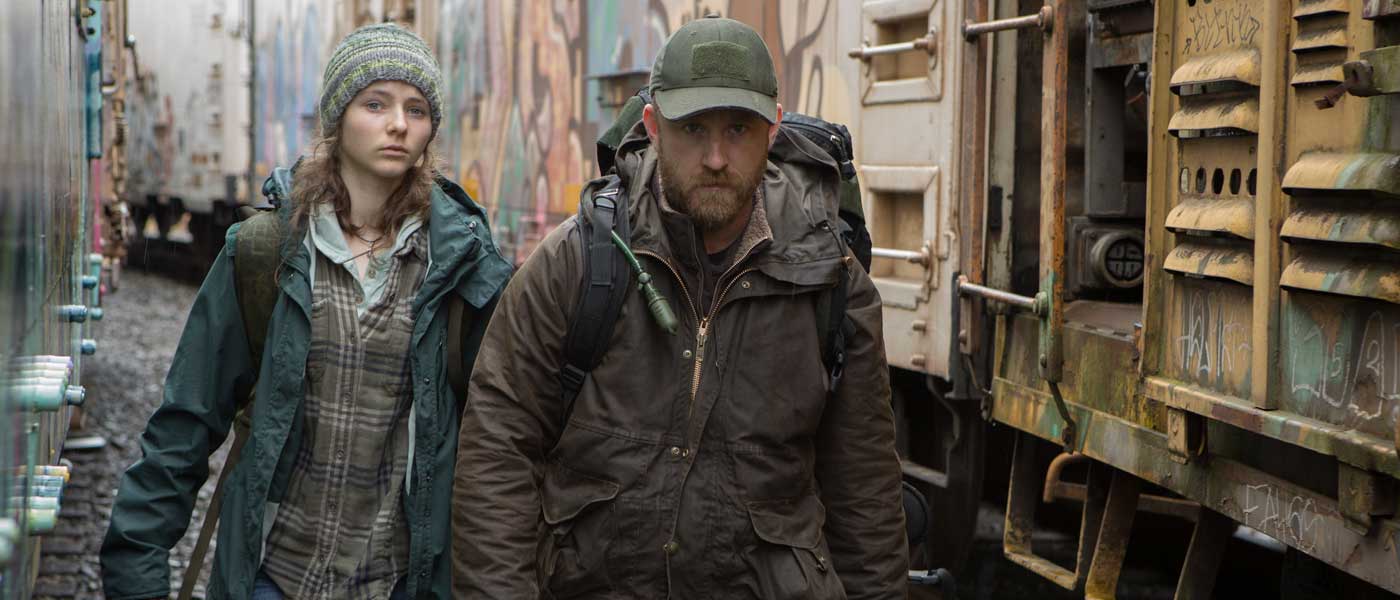Winter’s Bone director Debra Granik returns with a different kind of backwoods family drama in Leave No Trace, writes MacDara Conroy
Eight years after Winter’s Bone flung Jennifer Lawrence into the limelight, director Debra Granik returns with another kind of backwoods family drama, lighting on her recurring themes of drug dependency and living against the grain, and anchored by another young woman’s sublime performance as an anti-ingenue. In other words, it’s impossible to evaluate Leave No Trace in a bubble, though it is clear from the outset that this and its predecessor are opposite in tone.
Where a major thread of Winter’s Bone was familial abandonment, the beating heart of Leave No Trace (adapted from Peter Rock’s novel My Abandonment by Granik and regular collaborator Anne Rosellini) is the profound relationship between grizzled former soldier Will (Ben Foster, Hell or High Water) and his coming-of-age daughter Tom (Thomasin Harcourt McKenzie, a Kiwi you might have seen on Shortland Street), who eke out a virtually invisible existence in an Oregon pine forest, living off the land, in harmony with nature. Michael McDonough’s unobtrusive cinematography captures the spirit of it all.
If Henry David Thoreau comes to mind, you’re not wrong — but think the real Thoreau, not just the Walden mystique. Civilisation is closer at hand than Will and Tom’s good life suggests; a necessity for their occasional forays into the city for food and, more importantly, drugs from the VA hospital that Will sells to fellow shell-shocked combat veterans holed up in the woods, rejected by society. Will’s own PTSD nightmares haunt his waking hours as much as they disturb his sleep. But he finds solace in Tom’s companionship, and pride in her resourcefulness, even if a minor slip on her part causes them to be dragged from their simple life into the maws of a monolithic ‘system’ that has little clue what to do with them.

Getting back to Thoreau for a minute: he was an adherent of transcendentalism, a popular school of thought in his day that focused on the inherent goodness of the world. In contrast to the persistent stumbling blocks of misogyny, and loyalty over justice, that Ree Dolly faces in the isolated Ozarks, Tom and Will are fortunate to encounter genuine kindness within society’s faceless bureaucracy — from sympathetic social workers to helpful, but not unaware, strangers (among them Dale Dickey as the flip of her character in Winter’s Bone) as they embark on a kind of odyssey where the end point gets only hazier the further they go.
There’s nothing hazy about the leads, who make for a remarkable double act with complementary but distinct, stripped-back performances. Foster straddles the line between quiet determination and autistic withdrawal, veering into the latter as his frustrations mount. His Will isn’t doing so well with continued contact with the wider world, even in the rural environment. A job placement at a farm harvesting Christmas trees for wealthy urbanites brings on flashbacks of the war that broke him. When the pair find some understanding among a tight-knit commune of older hippie and lumberjack types, it’s still no salve for his restless conscience, nor his deep distrust of the world that forsook him.
McKenzie, meanwhile, is a revelation. At first inscrutable, Tom’s poker face gradually softens with her growing exposure to other people and other lives, betraying that she’s more of a regular teenager than her survivalist upbringing might imply. As she makes pointed, poignant connections, without her father as the conduit, she is clearly on the brink of something that Will must recognise needs a change in their circumstances. McKenzie reads the role with a knowingness both appropriate for her age and far beyond her years. One to watch, no doubt.
Leave No Trace opened in selected cinemas nationwide on Friday June 29th


